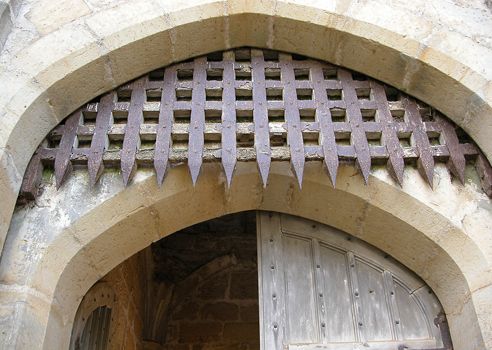Reading time: Less than 1 minute
Increase your vocabulary and you’ll make your writing much more precise. That’s why I provide a word of the week. Today’s word: portcullis…
I have certain gaps in my reading and one of the large ones is that I’ve never read any Barbara Tuchman. (I’ve also failed to read any Virginia Woolf, but that’s another story…)
Tuchman was an historian who not only wrote bestsellers but who also won Pulitzers. She received one for the The Guns of August — her 1962 study of the background of World War I — and her second, in 1971, for Stilwell and the American Experience in China.
In researching this post, I stumbled across her 1989 obituary in the New York Times where she was quoted as having said: ”I want the reader to turn the page and keep on turning to the end…. This is accomplished only when the narrative moves steadily ahead, not when it comes to a weary standstill, overloaded with every item uncovered in the research.”
This has made me grateful for having a reader, John Friesen, who has brought Tuchman’s book, The Guns of August, to my attention with a word of the week, portcullis. Here is how Tuchman used it:
Liege was the portcullis guarding the gateway into Belgium from Germany. Built on a steep slope rising 500 feet up … it was popularly considered the most formidable fortified position in Europe.
I knew from my travels in Europe that a portcullis was strong grating that slid up and down in vertical grooves and could be lowered to block a gateway to a fortress or town. (See photo, above.) But I’d never investigated the etymology. That said, I speak enough French to recognize the word porte, meaning door, which comes from the Latin porta, meaning gate. Cullis comes from coleice meaning “sliding, flowing,” from the Latin colatus, meaning “to filter, strain.”

